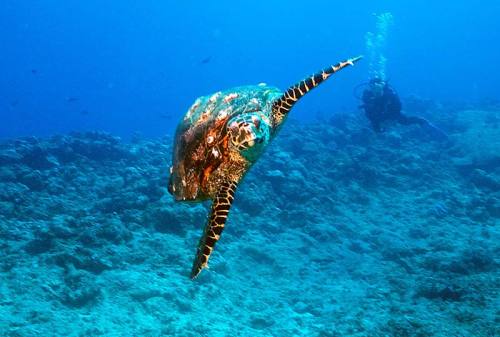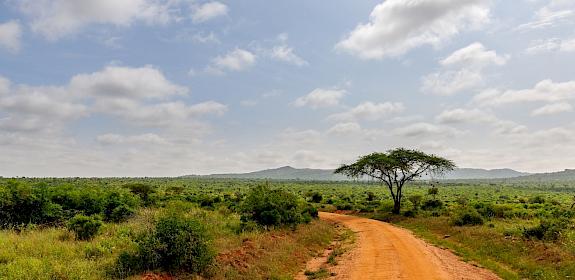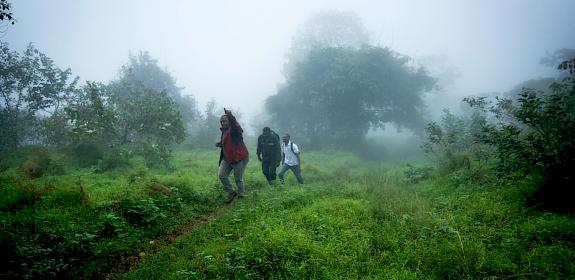Tourists targeted with Hawksbill shell souvenirs
Cambridge, UK, 6th August 2009—Items made from Hawksbill Turtle shell are being sold to tourists in Papua New Guinea, particularly in the capital Port Moresby, as well as in duty free shops at the country’s international airport, according to a new report published in the latest issue of the TRAFFIC Bulletin.

Hawksbills, like other marine turtles, are listed in listed in Appendix I of CITES (the Convention on International Trade in Endangered Species of Wild Fauna and Flora), making any commercial international trade in their products illegal.
Jeff Kinch of the Secretariat of the Pacific Regional Environment Programme (SPREP) and Elizabeth Burgess of the University of Queensland surveyed markets throughout Papua New Guinea and found a total of 1,441 marine turtle and 12 freshwater turtle products—mostly jewellery items—for sale. Ninety-nine percent of sea turtle products were made from Hawksbill Turtles.
In Papua New Guinea, tortoiseshell has long been used by coastal and island villagers for a variety of utilitarian and decorative purposes and was an important trade commodity between indigenous inhabitants and European traders.
In the Trobriand Islands in Milne Bay Province, for example, young girls have their ears pierced as babies and tortoiseshell earrings are inserted and continue to be added as the girl grows, resulting in large extended ear-lobes.
Other uses of tortoiseshell include the manufacture of motifs (decorative designs in the form of Chinese dragons or bird-of-paradise—a national symbol of Papua New Guinea), and lime sticks, or spatulas, used to transfer lime powder to the mouth when chewing the mildly narcotic betel nut, a practice popular amongst men in Milne Bay Province.
Surveys in the 1970s and early 1980s estimated that turnover in tortoiseshell products was not high in Papua New Guinea and that Hawksbill Turtles accounted for less than five per cent of all marine turtles harvested for sale. However, the latest study has shown that international tourists are being targeted to buy tortoiseshell souvenirs.
“Any increase in Hawksbill Turtle harvest to supply tourists with tortoiseshell products would be disastrous,” warns Kinch.
“Tourists should be aware that buying tortoiseshell souvenirs has a fatal cost of contributing to Hawksbill Turtle extinction.”
He also called for strengthened enforcement in Papua New Guinea of international regulations governing trade in marine turtle parts.
Tortoiseshell, derived from the scutes of Hawksbill Turtle shells, has been in demand worldwide for centuries, and is a key reason, along with demand for the turtle’s meat and eggs, for the decline of populations in many parts of the world. Hawksbill Turtle is listed by IUCN as Critically Endangered, because of long-term population declines in excess of 80% within three generations.
Other features in the latest edition of the TRAFFIC Bulletin—the only peer-reviewed journal dedicated to studies of the global wildlife trade—include the results of surveys carried out by TRAFFIC in Thailand and Viet Nam, two countries identified during the past decade as centres of concern in the trade in illicit ivory. An investigation into the sale of skins of Leopards and Snow Leopards in Afghanistan shows that the trade, which had come to a complete halt during almost three decades of war, has revived since late 2001 and is flourishing on an even larger scale than before, a demand driven by the very people who came to Afghanistan to help rebuild the country.
News items include an examination into law enforcement efforts in Russia’s Far East; the illegal logging of rosewood in the rainforests of north-east Madagascar; and the new FairWild Standard for medicinal plants and how it is being implemented in a range of countries.
The latest TRAFFIC Bulletin is available for download here.



